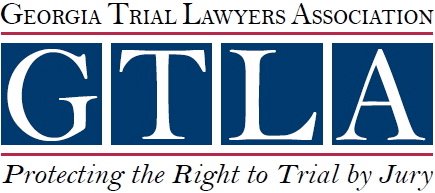Boat accidents in Georgia are more common than people may think. With its lakes, rivers, and access to coastal waters, the state attracts many recreational boaters. However, when accidents occur on the water, the legal landscape differs from typical car accidents or other land-based incidents. The unique nature of maritime law, which governs these types of accidents, can be confusing for those involved in a boating accident. Understanding the key aspects of maritime law and how it applies to boat accidents in Georgia is essential for anyone who spends time on the water. At, Princenthal, May & Wilson, LLC , we are here to guide you through the legal process and help you navigate the complexities of your case.




What Is Maritime Law?
Maritime law, also known as admiralty law, is a body of laws that governs activities and events that take place on navigable waters. Navigable waters include lakes, rivers, and oceans where boats and ships regularly travel. When a boat accident occurs on these waters, maritime law often comes into play. These laws are meant to regulate everything from personal injury cases to cargo disputes, making them far-reaching and essential for maintaining safety and order on the water.
For people who are involved in a boat accident in Georgia, maritime law can determine many aspects of their case. These laws may govern who is at fault, how damages are calculated, and what kind of compensation someone can expect if they are injured. Understanding the connection between maritime law and state law is key to knowing your rights after a boating accident.
How Georgia State Laws and Maritime Laws Work Together
While maritime law governs accidents on navigable waters, Georgia state law can still be relevant in certain boat accident cases. The interaction between these two legal frameworks can be complicated, but it is important to understand how they can influence your case.
Georgia laws provide important guidelines for boat owners and operators, such as the need for boat registration, safety equipment requirements, and boating under the influence (BUI) regulations. These laws are meant to keep boaters safe, but when an accident happens, maritime law may step in. For instance, if an accident occurs on a large lake or off the coast, maritime law may take precedence over state law. On the other hand, accidents on smaller bodies of water or non-navigable waters may fall under state law only.
Understanding which laws apply to your boat accident can be tricky, especially if the accident occurs in a place where both state and maritime laws could apply. In some cases, determining whether an accident occurred on navigable waters can affect how the case is handled and what compensation is available.
What Happens in a Georgia Boat Accident Case?
If you are involved in a boat accident in Georgia, the process may differ from a typical car accident case. Several factors come into play, including the location of the accident and the types of boats involved. Maritime law may come into effect if the accident occurs on navigable waters, while Georgia state law may apply if the accident happens on a smaller lake or river.
After a boat accident, it is essential to gather as much information as possible. This includes details about the other boats involved, the conditions of the water, and any injuries or property damage that occurred. In many cases, boat accidents lead to serious injuries, such as head trauma, broken bones, or even drowning. The severity of the injuries can affect the outcome of any legal claims that may follow.
Boat accidents also require an understanding of fault and liability. Under maritime law, different rules may apply when determining who is responsible for an accident. For instance, the rules of comparative fault often come into play, which means that more than one party may be held responsible for the accident. Even if you are partially at fault, you may still be entitled to compensation, although the amount may be reduced based on your level of fault.
Common Causes of Boat Accidents in Georgia
There are many causes of boat accidents in Georgia, and understanding these causes can help prevent future incidents. Some of the most common reasons for boat accidents include operator inexperience, boating under the influence, and excessive speed. Additionally, mechanical failure, bad weather conditions, and reckless behavior on the water can also contribute to accidents.
Operator inexperience is one of the leading causes of boat accidents in Georgia. Boating requires a specific set of skills, and not all boaters have the training or experience necessary to handle their vessels safely. This lack of experience can lead to poor decision-making, which increases the risk of accidents.
Boating under the influence, or BUI, is another significant factor in boat accidents. Similar to driving under the influence, boating under the influence impairs a person’s ability to operate their boat safely. Georgia law prohibits operating a boat with a blood alcohol concentration of 0.08% or higher. Those who break this law not only put themselves and others at risk but also face legal penalties.
What to Do If You Are Injured in a Boat Accident
Being injured in a boat accident can be a traumatic experience, and knowing what steps to take afterward is crucial. The first thing to do is to seek medical attention for any injuries. Even if you do not feel seriously injured, it is important to get checked out by a healthcare professional, as some injuries may not show symptoms right away.
After seeking medical care, the next step is to gather information about the accident. This includes the names and contact details of other boaters involved, any witnesses, and details about the boats. Taking photos of the scene, including damage to the boats and the surrounding area, can also be helpful later if you need to file a claim.
Hiring a Personal Injury Attorney How Long Will a Personal Injury Case Take?Related Videos
It is also essential to report the accident to the appropriate authorities. In Georgia, you are required to report boat accidents that result in injury, death, or significant property damage. Failing to report an accident can result in penalties, so make sure to follow through with this step.
If the accident occurred on navigable waters, maritime law might apply, and you may need legal assistance to navigate the complex legal system. Seeking the help of a legal professional who understands maritime law can ensure that your rights are protected and that you receive the compensation you are entitled to.
Liability in Georgia Boat Accident Cases
Determining liability in a boat accident case can be challenging, especially when both maritime and state laws come into play. In many cases, liability is based on negligence, which means that one or more parties failed to exercise reasonable care while operating their boat.
For example, if a boat operator was speeding, distracted, or under the influence of alcohol at the time of the accident, they may be found liable for any injuries or damages that occur. However, under maritime law, the concept of comparative fault can complicate the situation. Comparative fault means that multiple parties may share responsibility for the accident, and the compensation awarded may be reduced based on each party’s level of fault.
Because liability in boat accidents can be complex, it is essential to work with a legal professional who has experience handling these types of cases. Having an advocate who understands both maritime and state laws can make a significant difference in the outcome of your case.
Representative Cases
Filing a Claim After a Boat Accident
Filing a claim after a boat accident can be different from filing a claim for a car accident or other types of personal injury cases. If maritime law applies, certain rules must be followed, and these cases are often handled in federal court rather than state court.
Additionally, there are specific deadlines, known as statutes of limitations, for filing boat accident claims. In some cases, these deadlines may be shorter under maritime law than they would be under state law. Missing these deadlines can result in losing your right to pursue compensation, so it is important to act quickly.
When filing a claim, you may be able to seek compensation for a variety of damages, including medical expenses, lost wages, pain and suffering, and property damage. The amount of compensation you can receive will depend on the details of your case, including the severity of the injuries and the level of fault involved.
Understanding how maritime laws apply to Georgia boat accidents is critical for anyone who spends time on the water. Whether you are injured in an accident or simply want to know your rights, knowing the basics of maritime law can help you navigate the legal process. From understanding liability to filing a claim, having a clear picture of your legal options is essential.
If you or a loved one has been involved in a boat accident, you do not have to navigate the legal system alone. The attorneys at Princenthal, May & Wilson, LLC are here to help. Our team understands the complexities of maritime law and can guide you through every step of your case. Contact us today to learn more about how we can assist you with your boat accident claim.





